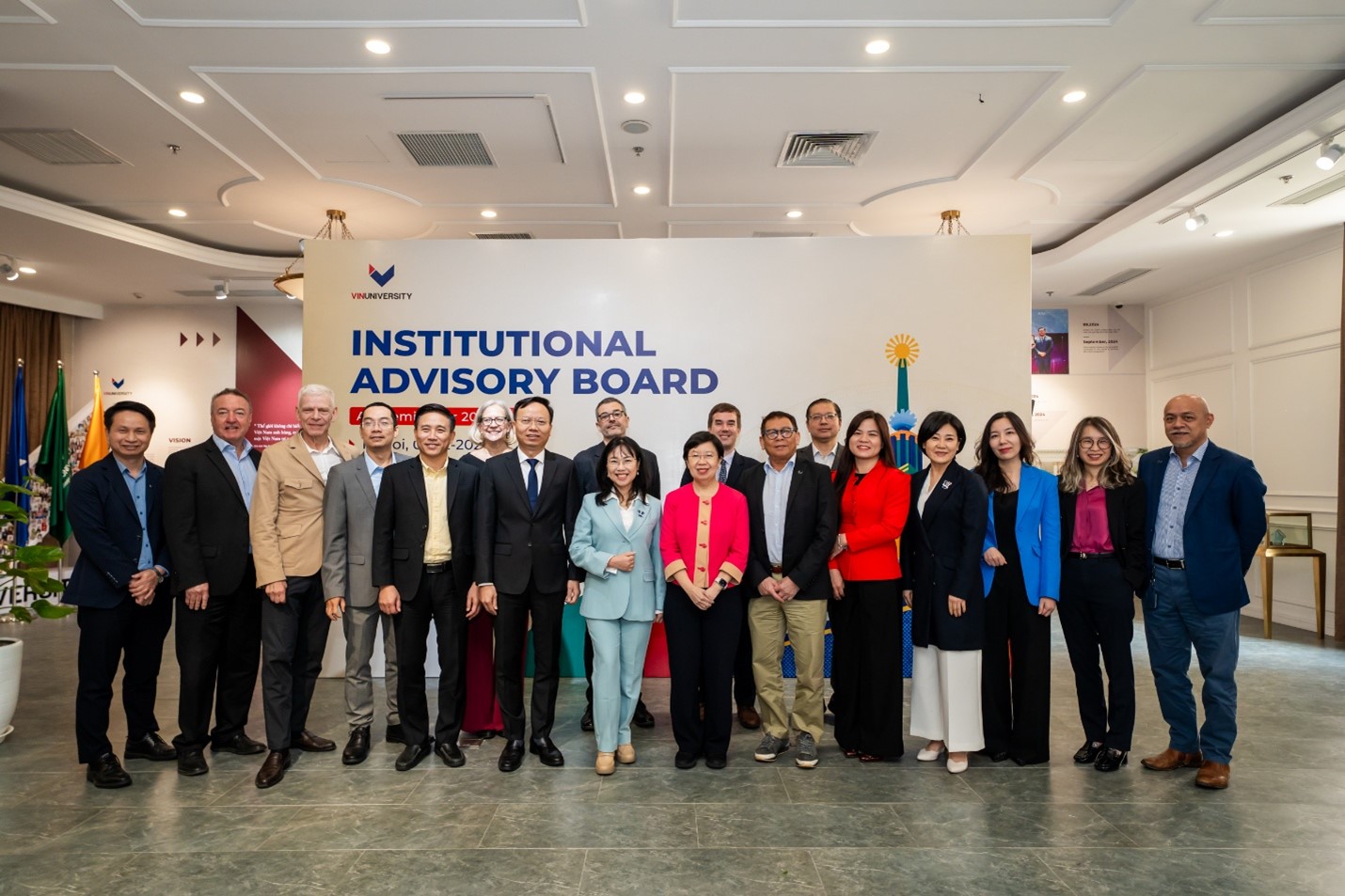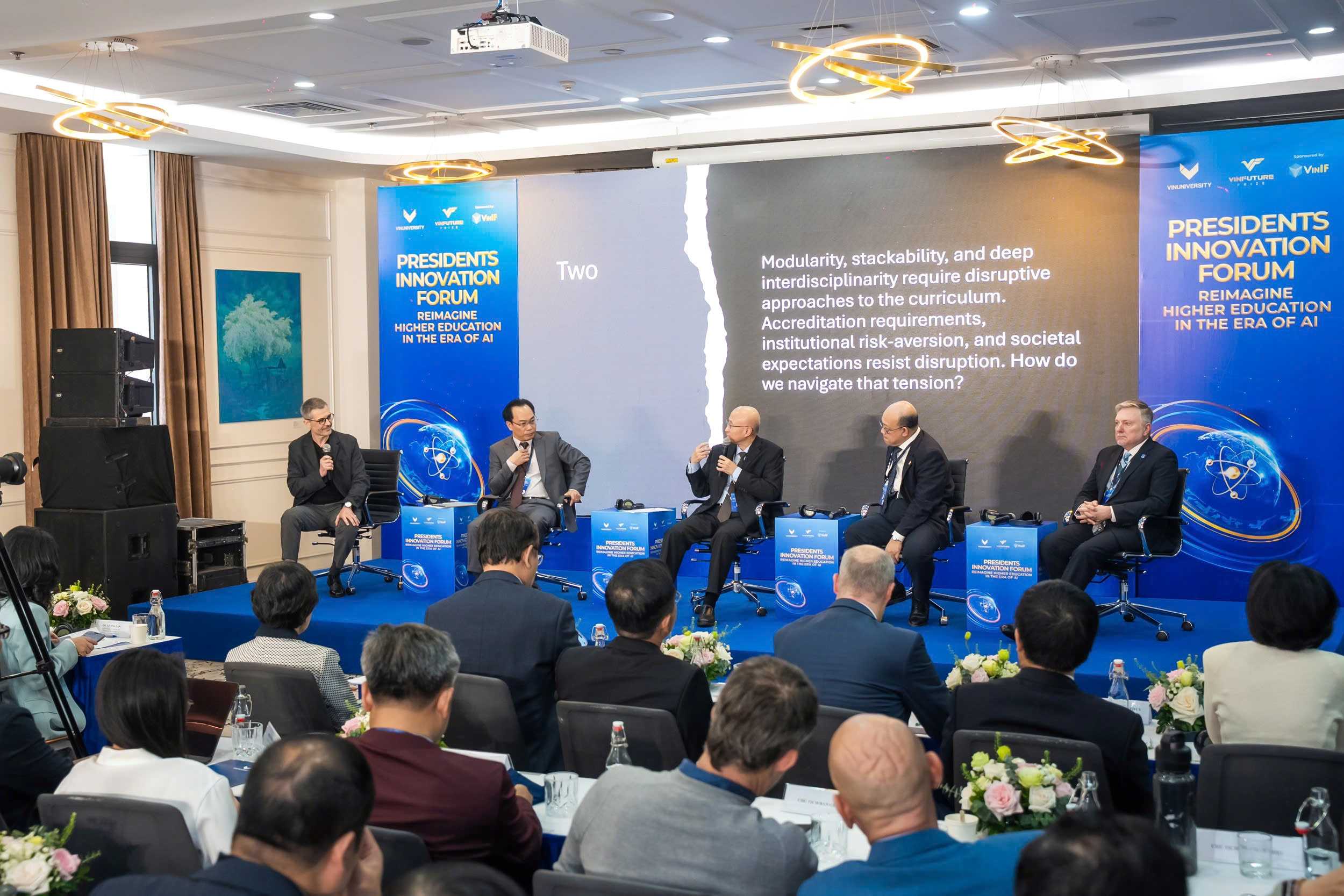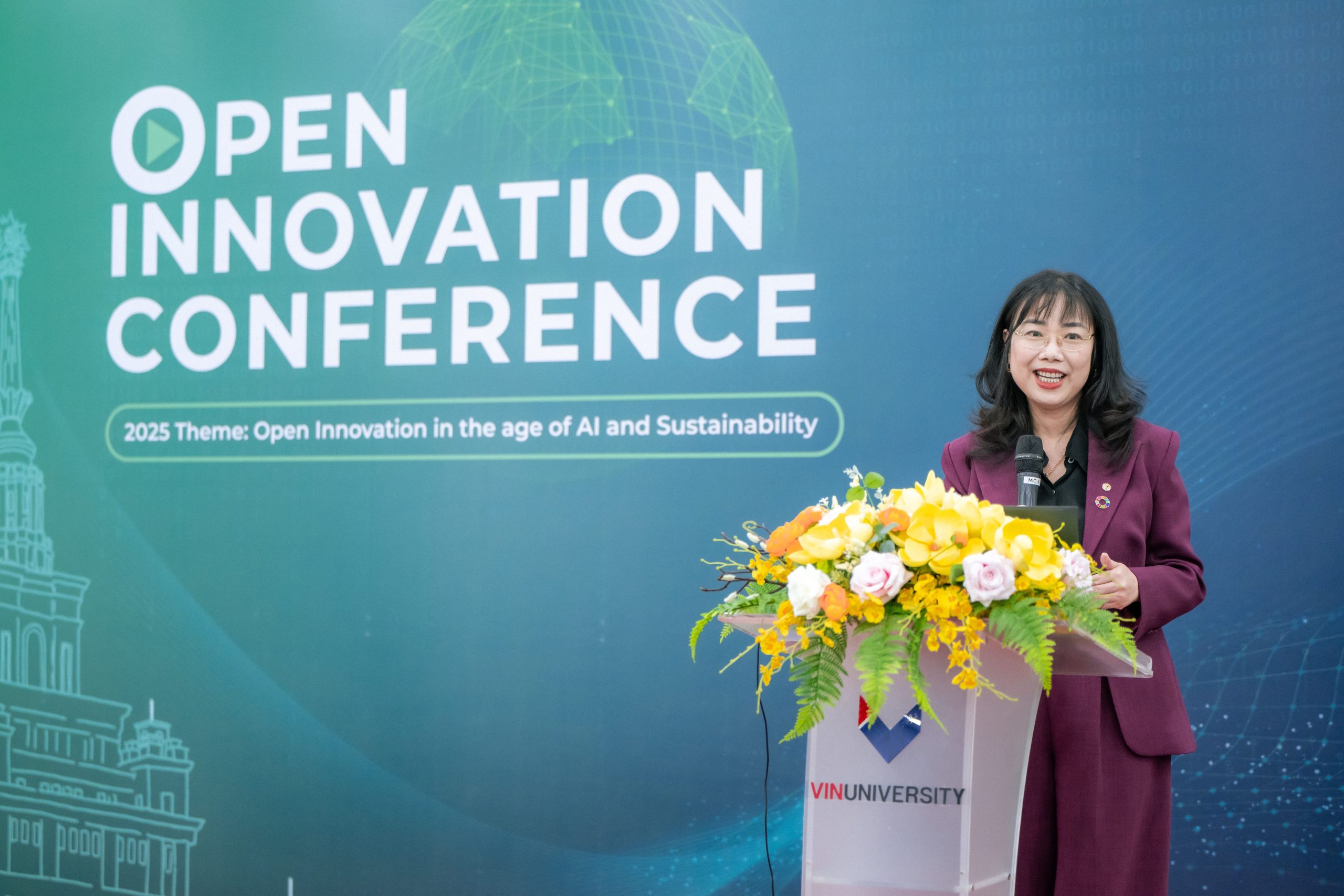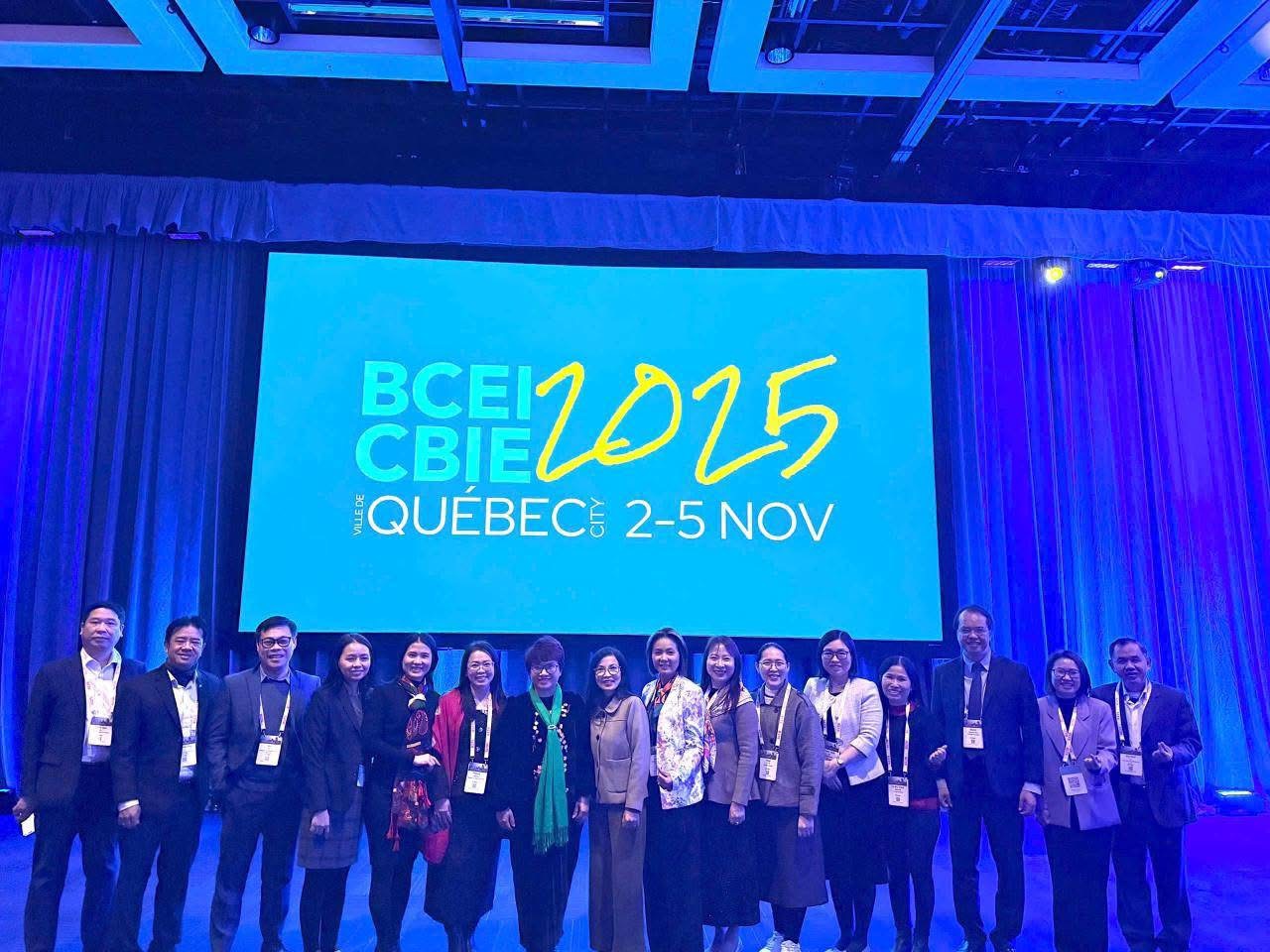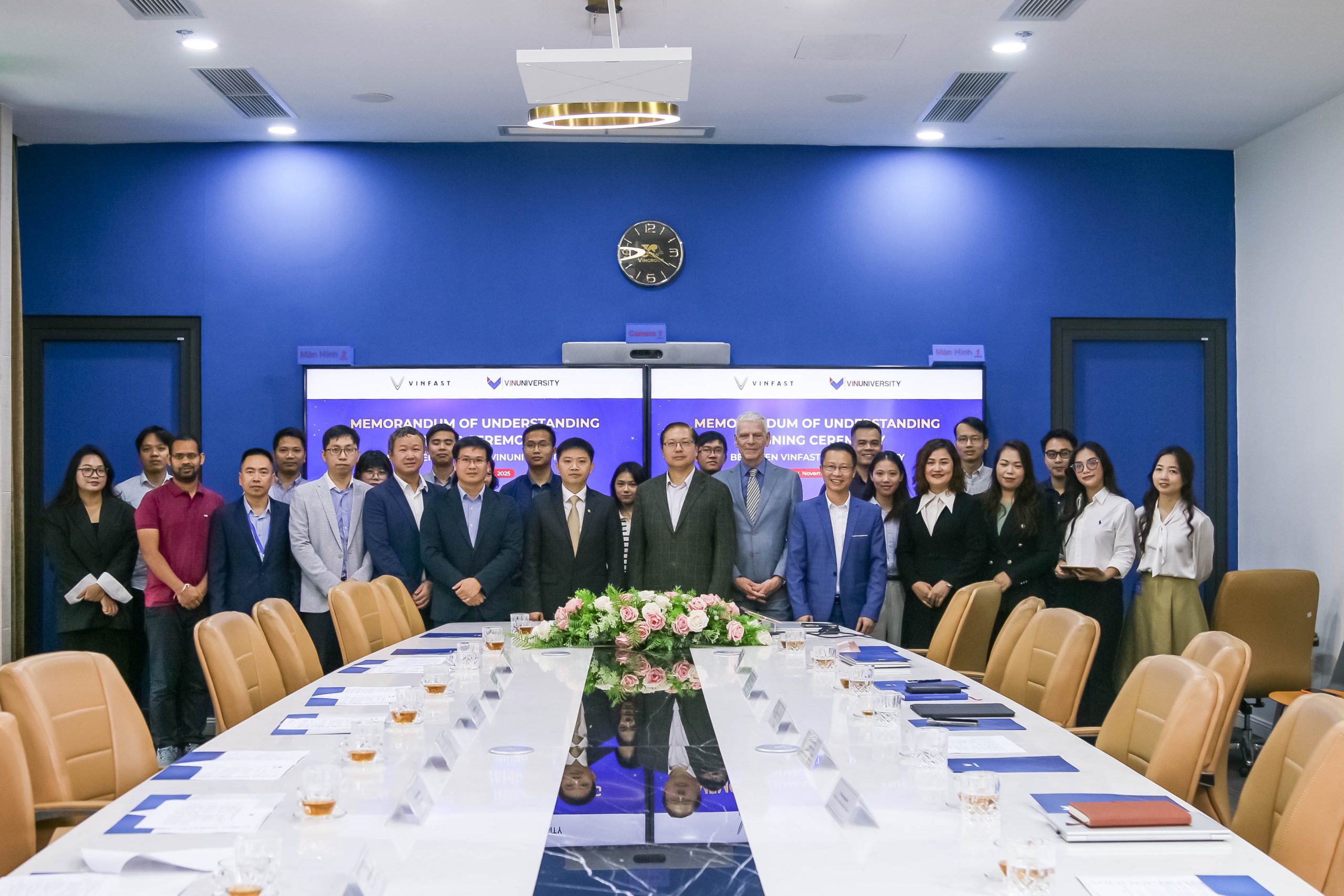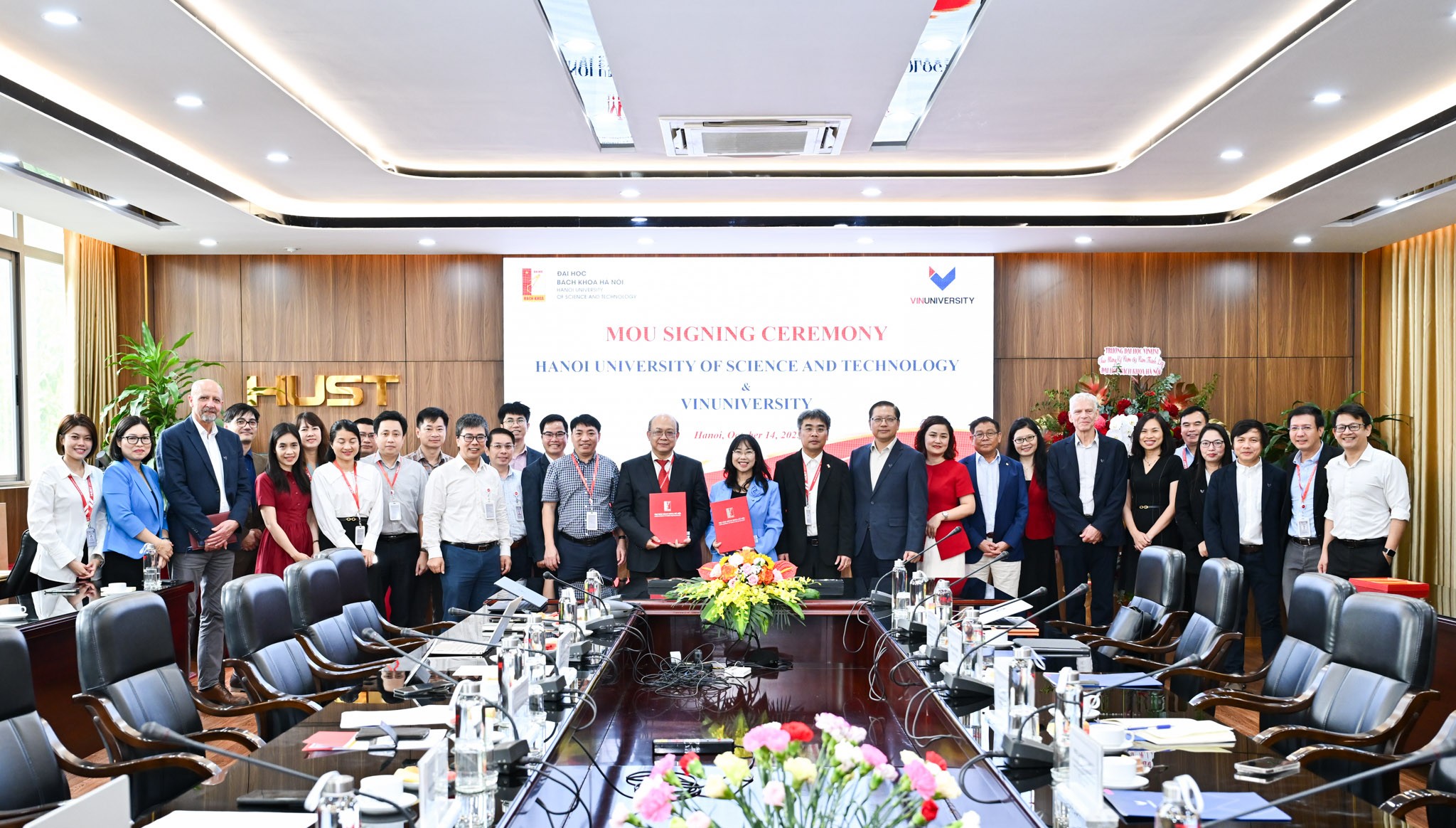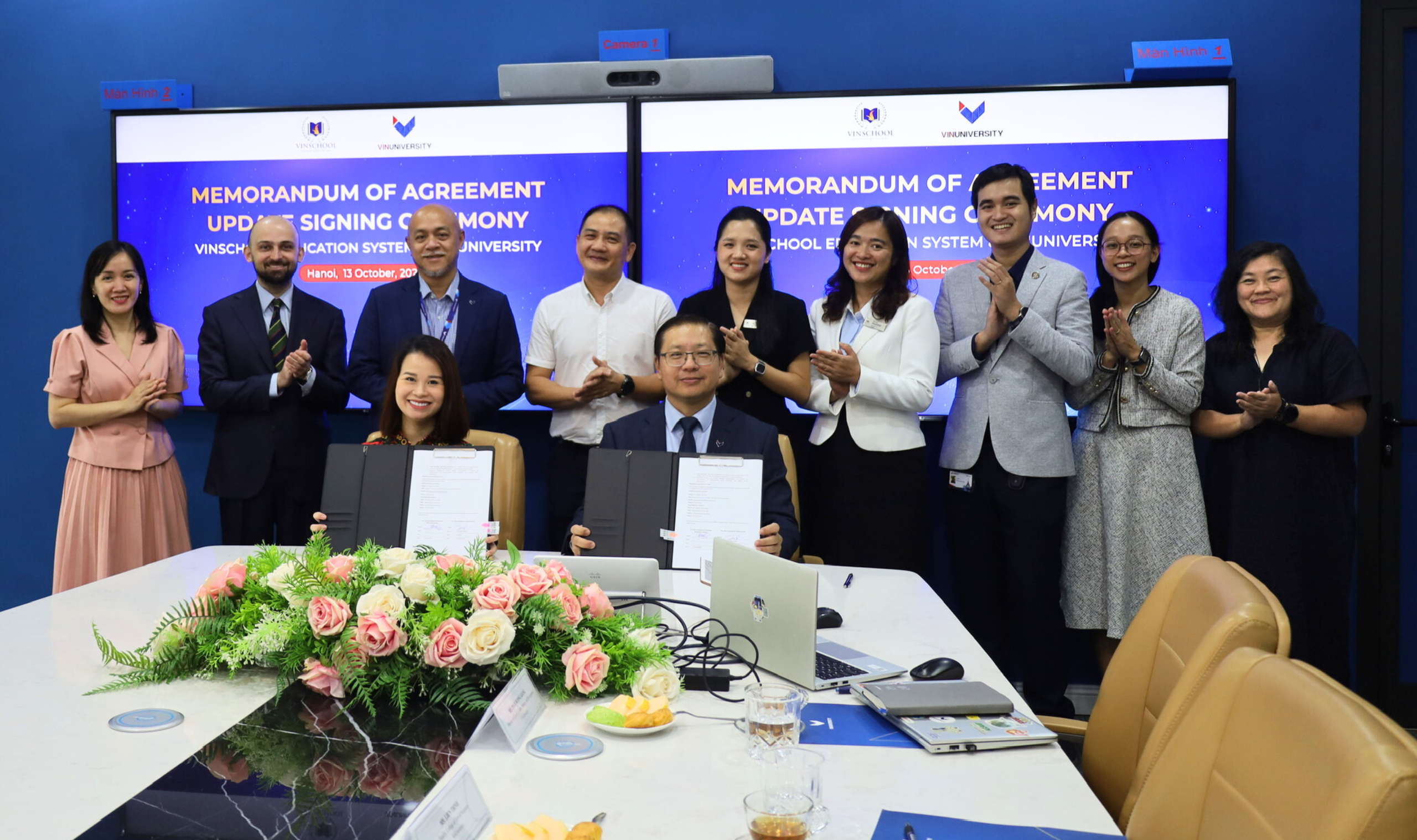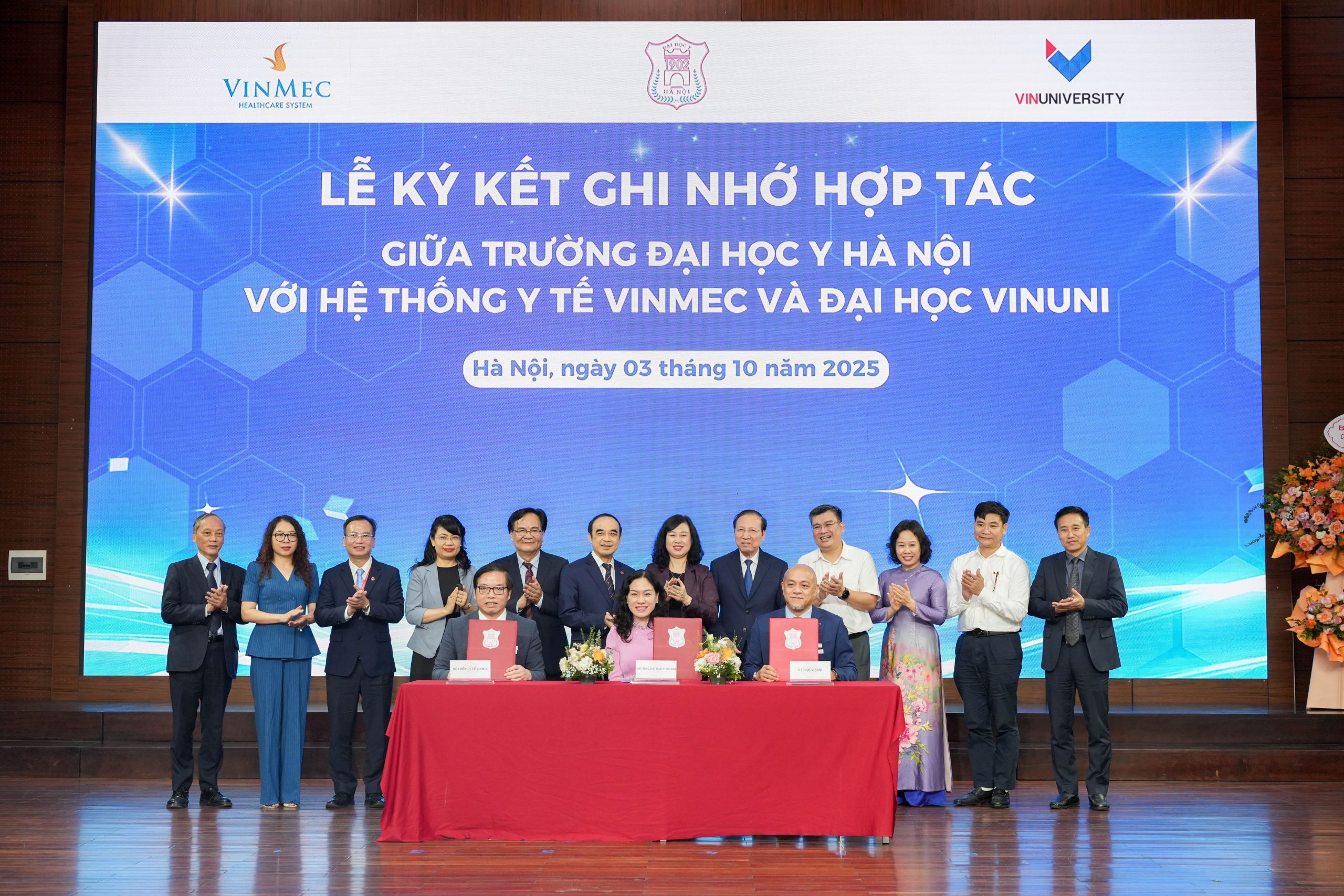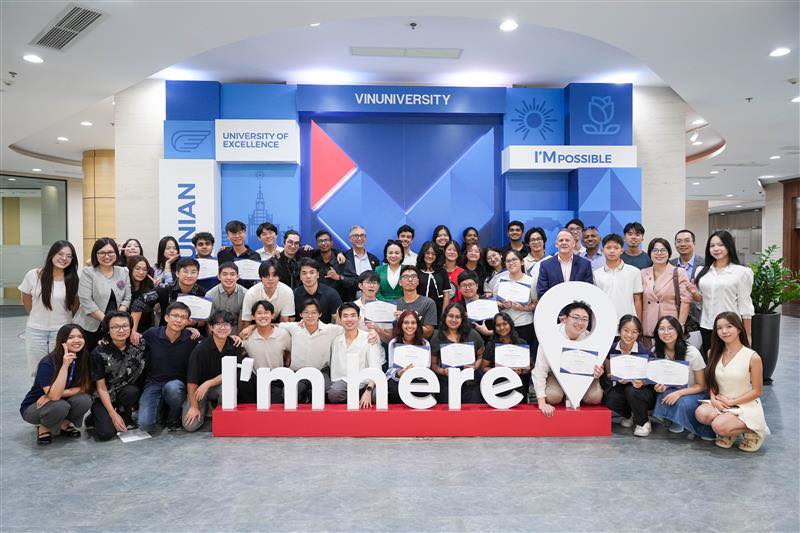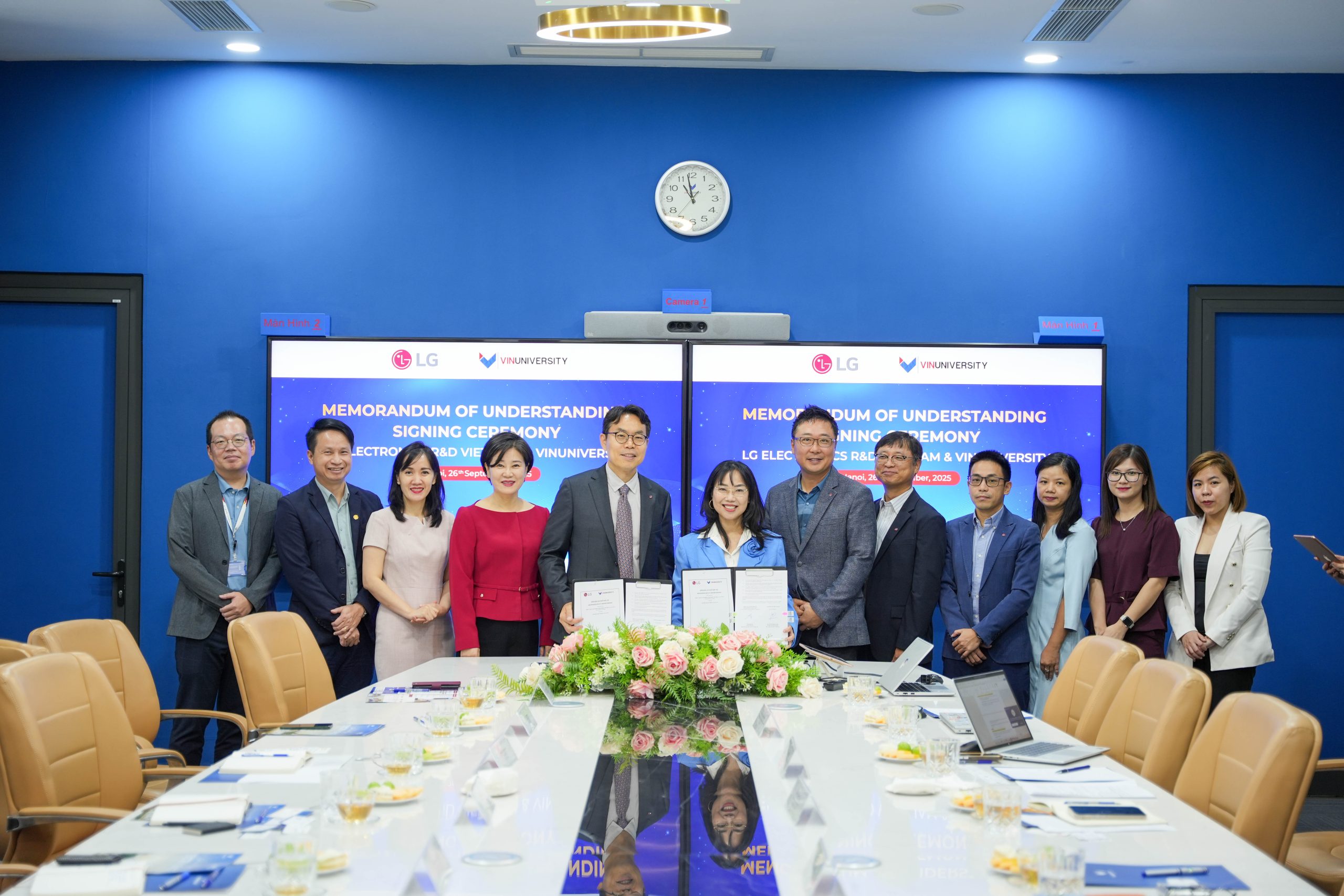The 8th National Medical Education Conference, themed “Strategic Partnerships: From Medical Education to Professional Practice,” was jointly organized by the Vietnam Association of Medical Education (VAME) and VinUniversity on November 15–16, 2024, at VinUniversity’s campus in Vinhomes Ocean Park, Gia Lam, Hanoi.
VinUni, a young university in medical education with the core spirit of being “Academic – Practical – Global,” takes pride in being the first private university to host the National Medical Education Conference. This year’s theme reflects the mission of VinUni and other health education institutions in Vietnam to develop high-quality medical human resources. It emphasizes combining strong theoretical knowledge with practical skills to meet the demands of modern healthcare and international integration. The conference focuses on building strategic foundations for medical education while underscoring the importance of close collaboration between educational institutions and teaching hospitals.
Nearly 1,000 delegates, including leaders from the Ministry of Health and the Ministry of Education and Training, representatives from international organizations such as WHO and USAID, 30 international experts from top universities such as Harvard, Charité Berlin, and the University of Pennsylvania, alongside leaders from leading hospitals, sponsors, and students in health sciences, attended the conference to exchange ideas and share experiences.
The conference program featured 18 specialized workshops, 55 leaders participating in Dean’s club meetings, over 30 scientific presentations and keynote lectures, and 50 scientific posters covering cutting-edge topics in medical education. For the first time, the conference also included the Medical Academic Competition for students, initiated by VinUniversity. This competition showcased the dynamism, creativity, and integration capacity of medical students nationwide, attracting more than 60 teams from 14 public and private medical schools. The event was meticulously organized to provide a platform for medical students across Vietnam to showcase their skills.

The conference began with opening remarks from representatives of VAME, the Ministry of Education and Training, the Ministry of Health, and other guests, focusing on the pivotal role of medical education in improving healthcare quality in Vietnam. In his speech, Prof. Dr. Le Quang Cuong, President of VAME and Vice Chairman of the National Professorship Council, stated:
“The 8th National Medical Education Conference marks a significant step forward in improving the quality of medical education in Vietnam. It provides an opportunity for experts, researchers, and educators to share and learn innovative methods, apply technology and artificial intelligence in medical education, and highlight the critical connection between education and practice.”
In the plenary session, two keynote presentations were delivered by Prof. Harm Peters, President of the Association of Medical Schools in Europe (AMSE), and Assoc. Prof. John Patrick T. Co, Vice Chair for Graduate Medical Education at Mass General Brigham and Harvard Medical School. Their talks focused on undergraduate medical education and school-hospital partnerships to improve healthcare quality, garnering much attention from the attendees.
Specialized discussions featured the latest research on innovative teaching methods and the integration of technology in medical education and clinical practice. Presentations addressed the current state and future of artificial intelligence (AI) in education, including its use in teaching, simulations, assessments, and administrative management.

Prof. Dr. Le Quang Cuong – Chairman of the Vietnam Medical Education Association, and Vice Chairman of the State Professor Council, delivered a speech.
Dr. Nguyen Ngo Quang, Director of the Department of Science, Technology, and Training under the Ministry of Health, emphasized:
“With this year’s theme ‘Strategic Partnerships: From Medical Education to Professional Practice’, we believe that school-hospital partnerships form a solid foundation to enhance the quality of medical human resources. The Ministry of Health is committed to fostering a supportive and optimal environment for universities, hospitals, and healthcare organizations to thrive.”

Dr. Nguyen Ngo Quang, MD, Director of the Department of Science, Technology, and Training, Ministry of Health, presented at the conference.
At the conference, representatives from the Ministry of Health and the Ministry of Education and Training highlighted the urgent need for a unique cooperation mechanism between universities and hospitals in medical training. They emphasized creating favorable legal frameworks for medical education programs to be evaluated and accredited using sector-specific standards, rather than being constrained by general standards applied to other disciplines.
Assoc. Prof. Nguyen Thu Thuy, Director of the Department of Higher Education, Ministry of Education and Training, affirmed:
“We are fully committed to establishing a national accreditation and evaluation system for medical education, an essential component to ensure international-standard quality training. This commitment aims to provide Vietnamese medical students with a strong foundation for global integration. We will support educational institutions in adopting the highest standards to cultivate an outstanding medical workforce aligned with the practical needs of the healthcare system.”
Policies on innovations in medical education in Vietnam, the Law on Medical Examination and Treatment, and preparations for the national medical licensing exam were also updated by the Ministry of Health and discussed enthusiastically by attendees. HAIVN, a supporting organization, pledged to provide technical assistance to VAME and universities through a new project funded by USAID to prepare for this national exam.

Medical education is a unique field requiring close integration of theoretical teaching and clinical practice, with hospitals playing a crucial role. Training a nationally and internationally competent medical workforce cannot be achieved without the active participation of hospitals in designing, implementing, and evaluating medical education programs.
Hosted by VinUni, this year’s conference prioritized strategic directions for school-hospital collaborations in medical education in Vietnam. Challenges such as insufficient clinical training facilities were shared by delegates. Some facilities accommodate students from up to 11 universities, creating significant pressure on maintaining clinical training quality. Proposals for updated mechanisms and regulations for clinical training centers were highlighted.
The conference concluded with significant discussions and proposals.
Participants at this year’s VAME conference unanimously recommended establishing strategic alliances between medical schools and hospitals to create mechanisms and timely support to promote medical education in Vietnam. The conference also emphasized the need to leverage the role of private healthcare in school-hospital partnerships to provide additional training and practice environments for students, addressing challenges caused by the shortage of clinical training facilities.
At the conference, representatives from the Ministry of Health and the Ministry of Education and Training jointly committed to developing a specific cooperation mechanism between universities and hospitals for medical education, in accordance with Decree 111/2017/NĐ-CP on practical training in health sector education issued by the government.

Notably, representatives from both ministries, educational institutions, and clinical training facilities stressed the importance of creating a more appropriate legal framework to evaluate and accredit medical education programs with specialized standards tailored to the field, avoiding limitations from general accreditation standards applied to other disciplines.
Additionally, the development of an accreditation system aligned with international standards was recognized as an inevitable trend. The World Federation for Medical Education (WFME) has committed to supporting VAME in training national accreditation experts, enabling the evaluation of medical education programs for institutions aiming for international accreditation. This effort complements achieving domestic accreditation criteria as outlined by the Ministry of Education and Training. The conference celebrated the enduring contributions of VAME, medical universities, and teaching hospitals nationwide, from both public and private sectors. These efforts improve training quality and enhance the capacity to meet the growing healthcare demands of society.
This year’s conference was also an opportunity to honor the long-standing contributions of the Vietnam Association for Medical Education, medical schools, and teaching hospitals across the country, including both public and private sectors. With a rich history of research, training, and workforce development, Vietnam’s medical schools and clinical training hospitals have played a vital role in advancing the nation’s medical education through strategic training alliances. These efforts not only improve the quality of training but also strengthen the capacity to meet the growing healthcare needs of society.

The 8th National Medical Education Conference has provided a vibrant forum for medical education experts, lecturers, and researchers from Vietnam and abroad. This event not only marks progress in Vietnam’s medical education sector but also lays the foundation for further advancements in the near future.


